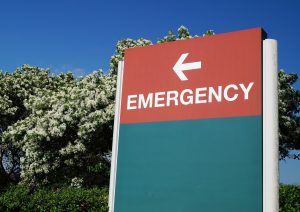Why Rural Emergency Physicians Should Consider Board Certification
 There has been a dearth of board certified emergency physicians for years, but in rural areas the shortage is especially severe. According to a study on emergency department staffing patterns, nearly two-thirds of board certified emergency doctors work in urban communities.
There has been a dearth of board certified emergency physicians for years, but in rural areas the shortage is especially severe. According to a study on emergency department staffing patterns, nearly two-thirds of board certified emergency doctors work in urban communities.
In a June article on the Health Leaders Media website, M. Kennedy Hall, MD, MHS, lead author of the research and an emergency department physician at Harborview Medical Center in Seattle, explained the challenge facing rural areas. “Rural area patients are now considered a disparity population, and rural areas are faced with an ongoing problem of insufficient numbers of emergency medicine-specialty physicians to staff their emergency departments,” Hall said.
Primary Care Doctors Experienced in EM Are a Good Fit for Rural Areas
An earlier study showed that ER physicians seeking employment face more barriers and fewer incentives in rural areas, Hall said. Factors that led doctors to choose urban hospitals over rural ones include access to amenities, specialist support and recreation, lifestyle, and location of residency programs, which are mostly in urban communities. A 2013 study revealed that cost considerations also discourage the hiring of emergency doctors in rural areas, Hall said. In other words, because of low ER patient volume, hospital leaders in rural areas could not justify hiring higher-paid emergency medicine specialists.
ER departments in rural areas have a much higher percentage of non-emergency medicine residency trained physicians on staff than departments in urban areas. Hall points out that nonemergency medicine residency trained physicians are a good fit at rural ERs. “The varied and usually primary care-centered training and skills of non-emergency medicine physicians … serve as a valuable asset in addressing patients’ health over a longer term than typically considered in traditional ER models,” Hall said.
Hall suggests that, as part of their ER hiring decisions, hospital leaders in rural areas should consider factors that include whether patient volume makes hiring ER doctors cost-effective, whether the budget dictates hiring non-emergency physicians, and whether training and experience can be provided for doctors who lack emergency board certification.
The Board of Certification in Emergency Medicine (BCEM)
The American Board of Physician Specialties® (ABPS), through its Member Board, the Board of Certification in Emergency Medicine (BCEM), offers an ideal solution for rural ER departments seeking qualified physicians with ER experience. The BCEM gives experienced physicians trained in primary specialties, such as family medicine, internal medicine, or pediatrics, the opportunity to demonstrate their proficiency at providing high-level emergency care. The supply of BCEM eligible physicians is increasing as post-primary care residency graduate training programs in emergency medicine are becoming more common across the United States. These programs have more than doubled in the past 5 years.
BCEM Certification Benefits Rural Hospitals, Patients, and Physicians
BCEM certification benefits rural hospitals and their ER departments as well as primary care physicians. BCEM certification is a symbol of medical excellence that builds patient trust and boosts a hospital’s reputation. For rural hospital managers, prioritizing respected practitioners like BCEM Diplomates can enhance the facility’s prestige, ensuring patients receive the quality care they deserve. As a career investment, BCEM certification positions doctors as leaders in the healthcare community, expands their opportunities for career advancement, increases their job mobility, and provides them opportunities to share best practices and establish valuable networking contacts.
BCEM physicians, and their hospitals, consider themselves emergency medicine specialists. “When I went to residency, I knew I wanted to work in a rural hospital. So I went into family medicine because that is who staffed all the rural hospital emergency departments in my home state,” said Alex Beuning, MD, a BCEM physician who works in Minnesota and Wisconsin. “ABPS gave me an opportunity to demonstrate my expertise in emergency medicine and assure that I can demonstrate my on-going commitment to my emergency medicine practice and my ability to practice at the high level required of any board-certified emergency medicine physician.”
Eligibility Requirements of the BCEM
The BCEM has specific eligibility criteria that applicants must meet to be considered for initial board certification. Prior to applying, candidates are required to fulfill the general prerequisites set by the ABPS, which encompass:
- Graduation from a recognized U.S. or Canadian allopathic or osteopathic college of medicine.
- Holding a valid and unrestricted license to practice medicine in the United States, its territories, or Canada.
The BCEM has its own eligibility requirements that include:
- Completion of an ACGME, AOA, RCPSC, or CFPC-accredited residency in emergency medicine, or
- Completion of an ACGME, AOA, RCPSC, or CFPC residency in one of the following primary care specialties—family practice, internal medicine, pediatric medicine, or general surgery—and at least 5 years AND 7,000 hours of full-time emergency medicine experience, or
- Completion of an accredited residency in one of the following specialties—family practice, internal medicine, pediatric medicine, or general surgery—and a 12- or 24-month emergency medicine fellowship approved by the AAEP.
To learn more about the BCEM, or for information about eligibility requirements for BCEM certification, contact the ABPS today.










